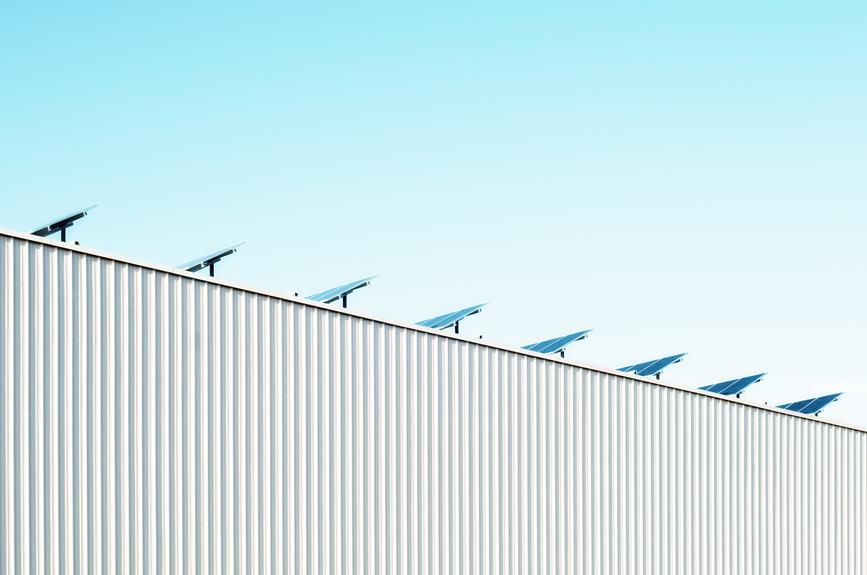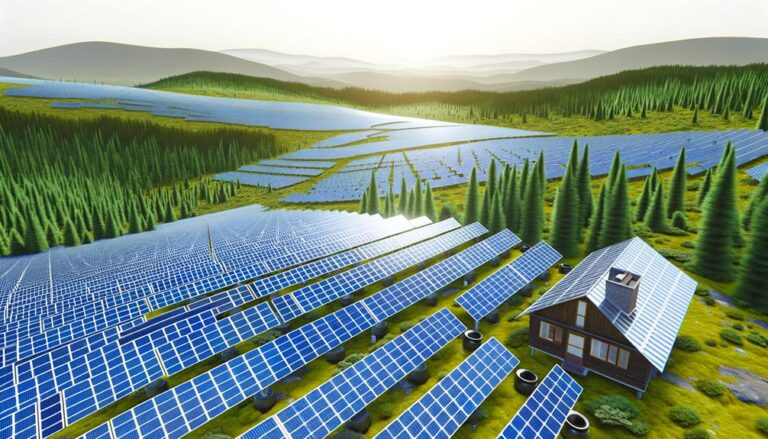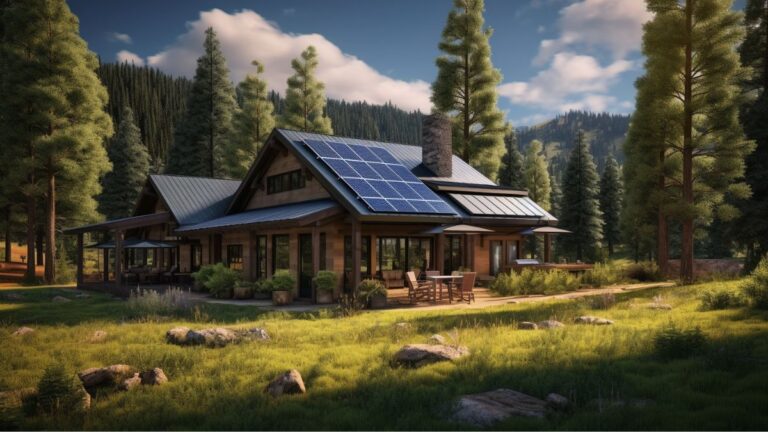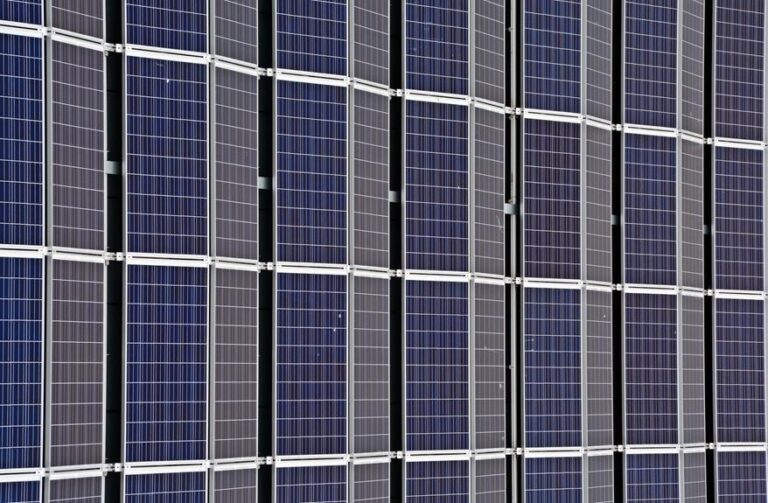Affordable Solar Panels: A Small Business Guide
Looking to harness the power of the sun for your small business? Affordable solar panels are the answer. With their ability to convert sunlight into electricity, these panels can not only reduce your energy costs but also contribute to a cleaner environment.
Imagine your business thriving under the warm glow of renewable energy, attracting like-minded customers who value sustainability.
In this guide, we’ll walk you through the factors to consider, types of panels available, financing options, installation process, and maintenance tips for a long-lasting investment.
Key Takeaways
- Cost analysis is crucial to determine the financial feasibility of installing solar panels.
- Consider the upfront cost of purchasing and installing panels, as well as potential return on investment (ROI) and long-term benefits.
- Different types of solar panels have varying levels of efficiency and cost, such as monocrystalline panels being highly efficient but more expensive.
- Explore financing options like government incentives, leasing options, and consider the installation process, including permitting and site preparation.
Factors to Consider
Consider these factors when choosing solar panels for your small business.
Performing a thorough cost analysis is crucial to determine the financial feasibility of installing solar panels. Calculate the upfront cost of purchasing and installing the panels, as well as any ongoing maintenance expenses.
Additionally, take into account the potential return on investment (ROI) that solar panels can provide. Consider the energy savings and potential revenue from selling excess electricity back to the grid. Keep in mind that the ROI will depend on factors such as your location, energy consumption, and available incentives or tax credits.
It’s essential to evaluate the long-term benefits and payback period to make an informed decision that aligns with your small business goals.
Types of Solar Panels
When selecting solar panels for your small business, it’s important to be aware of the different types available. Here are four types of solar panels to consider:
Monocrystalline vs. Polycrystalline:
- Monocrystalline panels are made from a single crystal structure, making them highly efficient but also more expensive.
- Polycrystalline panels, on the other hand, are made from multiple crystal structures, offering a lower efficiency but at a more affordable price.
Thin Film vs. Crystalline Silicon:
- Thin film panels are lightweight and flexible, allowing for easy installation on curved surfaces. However, they’ve lower efficiency and may require more space.
- Crystalline silicon panels, on the other hand, are rigid and provide higher efficiency, making them a popular choice for commercial installations.
Understanding the differences between these types of solar panels will help you make an informed decision for your small business. Consider your budget, space availability, and efficiency requirements to choose the right solar panels for your needs.
Financing Options
To explore financing options for your small business solar panel installation, it’s important to understand the different ways you can pay for the system. One option is to take advantage of solar incentives offered by the government. These incentives can include tax credits, grants, and rebates that can help offset the cost of installing solar panels. Another option is to explore leasing options. With a solar lease, you can have the panels installed on your property without upfront costs. Instead, you make monthly lease payments for a set period of time. This can be a more affordable option for small businesses with limited capital. Here is a visual representation of the financing options:
| Financing Option | Description |
|---|---|
| Solar Incentives | Government incentives such as tax credits, grants, and rebates |
| Leasing Options | Monthly lease payments for a set period of time |
Understanding these financing options can help you make an informed decision about how to pay for your small business solar panel installation.
Installation Process
Once you have secured financing for your small business solar panel installation, the next step is the actual installation process. Here are four key points to consider during this stage:
- Installation Timeline: The time it takes to install solar panels will depend on factors such as the size of your system and the complexity of your roof. On average, it can take anywhere from a few days to a few weeks to complete the installation.
- Permitting Process: Before installation can begin, you’ll need to acquire the necessary permits and approvals from your local authorities. This process may involve submitting plans, paying fees, and meeting specific requirements. It’s important to start this process early to avoid delays.
- Site Preparation: Prior to installation, your site will need to be assessed and prepared. This may involve clearing any obstructions, reinforcing the roof if needed, and ensuring proper electrical connections.
- Professional Installation: Hiring a qualified solar panel installer is crucial for a successful installation. They’ll handle the mounting of panels, the electrical wiring, and overall system integration.
Maintenance and Longevity
To ensure the long-term performance and durability of your solar panel system, it’s essential for you to prioritize regular maintenance and take proactive measures to extend its lifespan.
Regular solar panel cleaning is crucial to maintain optimal efficiency. Dust, dirt, and debris can accumulate on the surface of the panels, hindering their ability to absorb sunlight effectively. Cleaning the panels with a soft brush and mild detergent can help remove any buildup.
Additionally, it’s important to inspect the panels periodically for any signs of damage or wear, such as cracks, loose connections, or corrosion. Addressing these common maintenance issues promptly can prevent further damage and ensure the longevity of your solar panel system.
Conclusion
Investing in affordable solar panels for your small business can lead to significant cost savings and environmental benefits.
Did you know that the average payback period for commercial solar panel installations is around 5-7 years? This statistic highlights the financial value of solar energy, allowing businesses to recoup their initial investment and start enjoying long-term electricity savings.
With various financing options and a straightforward installation process, going solar has never been easier or more advantageous for small businesses.






